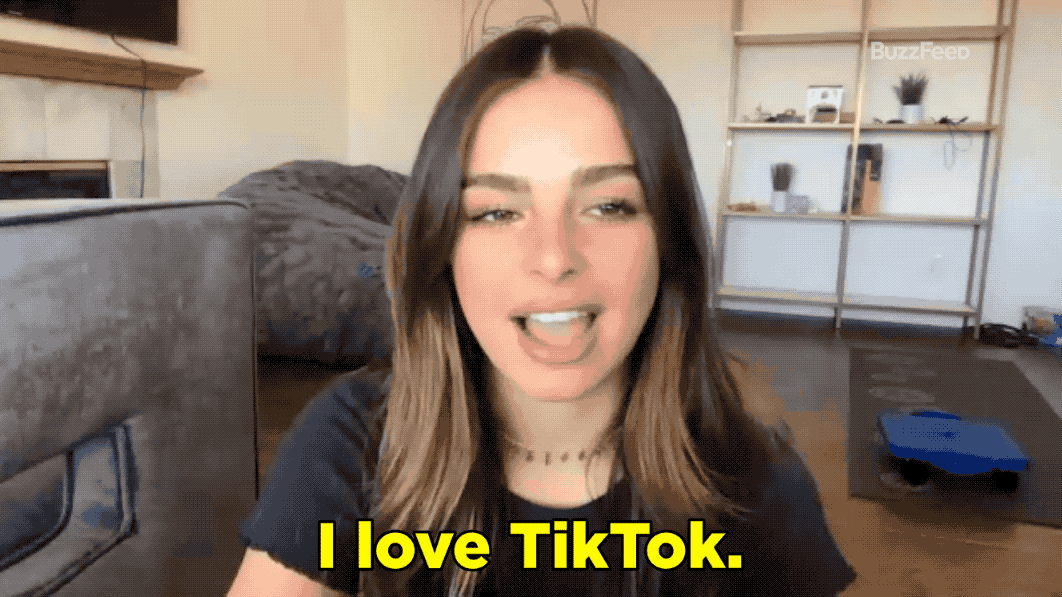TikTok Denial, AI Assistant Ethics & Bye I
5 in 5 - Brave & Heart HeartBeat #204 ❤️
This week we’ll be talking about US TikTok creators in denial, the ethics of AI assistants, and the phone free city in the Uk.
Plus, are Apple dropping the i, and how can “Quiet Weekends” help your work-life balance?
Let’s get into it.
Were you forwarded this? Not a subscriber? 👉 Sign up here
#1 - Us TikTok Creators In Denial
It turns out that US TikTok creators aren’t rushing to diversify their-short term video platforms, as a recent poll showed that 62% of US-based creators said they didn’t think TikTok would be banned by 2025.
As a reminder, last month the US congress passed a law that demands TikTok either separate from its Chinese parent company by the end of the year or face a nationwide ban, and TikTok are challenging the measure in court claiming it is unconstitutional.
The poll was carried out by influencer marketing platform Fohr, which connects creators with clients who want sponsored content, and questioned US creators with over 10,000 followers. 200 of them responded, half of which are creators who rely on influencing as their sole income.
Why are they so confident? Blind faith, maybe.
One creator told Fohr they were “in denial” because they think the ban is “ridiculous” and that the government has, quote: “bigger things to worry about than banning a platform where people are allowed to express their views and opinions”. Really, they don’t – that’s exactly the sort of thing they would worry about. Plus, China having access to those views and opinions is their main issue anyway.
Another factor may be the fact that the TikTok influencer business is still booming – 83% of the influencers polled said that their sponsorships have been unaffected. However, 7% said that a brand had paused or canceled a campaign and 8% said a brand had asked or at least considered moving a deliverable to another social media platform.
From a brand perspective, however, using TikTok right now is still safe, nothing has actually changed yet, so this may not really mean anything for the future – sorry to break it to the loyal creators.
The creators polled, however, do agree with us that Instagram is best placed to fill the marketing void that would be left by TikTok if it does get booted out of the US, with 67% seeing Instagram as a replacement, while 24% chose YouTube and 3%, interestingly, chose Pinterest.
The faith is strong in these guys, let’s hope they either get proven right or start trying out other platforms soon – they don’t want to find themselves with 0 Instagram followers and no TikTok account in November 2024…
#2 – Google & The Ethics Of AI Assistants
OpenAI stole their thunder by getting their multimodal AI assistant out 24 hours before Google were due to show off theirs’ at the Google I/O developer event, but while ChatGPT-4o’s “Sky” will laugh at your jokes and talks in a flirty, sultry apparently-not-Scarlett Johansson-voice, Google’s Project Astra has used a more “restrained and robotic” voice for their AI assistant, steering clear of any anthropomorphism.
And that wasn’t by chance.
Just last month, the researchers at Google’s AI division, DeepMind, released a long technical paper titled “The Ethics of Advanced AI Assistants”.
The paper argues that AI assistants which are designed to act in human-like ways could cause a whole range of problems which range from new privacy risks, new forms of tech addiction to much more powerful means of misinformation and manipulation.
Manipulation like corporations using the flirty AI systems to make sales, politicians using them to sway opinion one way or another, and imagine how much easier romance scams are about to become.
OpenAI obviously haven’t mentioned these risks, and the amount we’re hearing about ChatGPT4-o in comparison to Project Astra, despite them both being at least equally capable, shows that even when it comes to tech, sex sells.
While OpenAI’s safety and ethics researchers have been all but pushed out, it’s nice to see Google asking what we think are the right questions, but is it enough if they’re the only ones asking them?
#3 - The First Kids On Phones Free Zone
Like footloose, but for phones. St Albans in Hertfordshire has announced it’s goal to become the first UK city to go smartphone-free for all children under fourteen.
The headteachers of over 30 primary schools across the city sent a joint letter to families declaring their schools smartphone free and urging parents to delay giving their children a smartphone until at least year 9 of secondary school.
The teachers say they are joining the growing movement across the country which aims to change the “normal” age that children get a smart phone.
Daisy Greenwell, creator of the viral “Smartphone Free Childhood” WhatsApp group could be cited as one of the first to begin the movement after her WhatsApp group, which aimed to get parents from her local school together to agree to delay giving their children smartphones at the “usual” time of their first year of secondary school, blew up across the country.
Greenwell’s goal was to create a block against the “peer pressure” which has led children to have access to smartphones at a young age by ensuring that that pressure isn’t there by coordinating the parents.
We know smartphones and the access to everything that’s on them isn’t good for children, and putting rules in place at a school level seems like a pretty good initiative. If they need to get in touch with their parents, schools say, they can use a Nokia.
#4 - Goodbye i?
From the very beginning from Apple’s first ever computer, the Apple brand is synonymous with it’s lower case i prefix – but is it finally dated?
According to Ken Segall, the creative and brand expert that coined the I prefix back in 1998, it’s finally time to get rid.
Segall is the one who persuaded Steve Jobs to name the mac computer the iMac, rather than the name they had developed internally, which was, horrible – MacMan – and apparently, he was dead set on it.
According to him, the i is no longer as exciting as it once was. Back in 1998 it was amazing that a device was connected to the internet, which is what the i in this case stands for, (along with individual, imaginative, and I as in me, says Segall). Now, not so much.
Our most boring appliances are now connected to the internet, the internet no longer means anything to us, and for a company that’s known for innovation, it’s no longer anything to brag about.
While some marketing experts would say Apple would be crazy to lose their famous prefix, others would argue that the brand is so big that nobody would bat an eyelid – we’d still keep buying whatever they have to sell us.
Apple seem to be already moving away from the i – their latest new releases have leaned more heavily on the “Apple” part of the brand, for example the Apple Watch and the Apple Vision Pro. Apple aren’t announcing they’re getting rid of the i, but they might be slowly phasing it out.
#5 - Quiet Weekends
According to career trends expert Jill Cotton from Glassdoor, the “quiet weekend” could be a way to help you find a better work-life balance.
Rather than referring to a weekend of eating m and ms and watching Netflix in bed, or for a more wholesome example try reading a book and drinking tea in a deck chair all weekend, the “weekend” here refers to the end of the working week.
And while the “quiet” brings to mind the bare minimum work ethic of quiet quitting, it doesn’t mean doing the bare minimum at the end of your work week to start the weekend early either.
Rather, the “quiet weekend” approach to work means front-loading your most “stressful” work at the beginning of the week, and taking the last day of your working week, which in a traditional work environment is Friday, for deep, independent work, rather than the hustle and bustle of meetings.
That way you’re not wired when the day ends, you can wind down and fully switch off from the working week before going into your “you-time”, the actual weekend.
It probably works, but it’s idealistic.
The world doesn’t really run on a week to weekend rhythm. In a job where your work is cyclical during the week this could work, but when there are projects that last from weeks to months, some of those ends of the week will probably coincide with a busy period.
As always, though, you can set work-life boundaries which mean trying to implement ideas from the quiet weekend into your working pattern by allotting the last few hours of your last working day to ensuring that your affairs are in order to allow you to fully switch off at the weekend and start the working week in a good place.
Brave & Heart over and out.
Bonus
Google AI
Google’s AI overviews have been getting a lot of flack, so much so that they’ve become a meme.
The AI overviews are meant to summarise and collate the results that you get when you google something, basically giving you the answer you might be looking for.
But because the AI doesn’t know what’s true, only what’s popular, it has told people they should eat at least one small rock a day, put glue on pizza to ensure the cheese sticks to it and that astronauts met cats on the moon.
To find out more on how you can retain your top talent, or how we can help you with digital solutions to your business and marketing challenges, check out our case studies.



